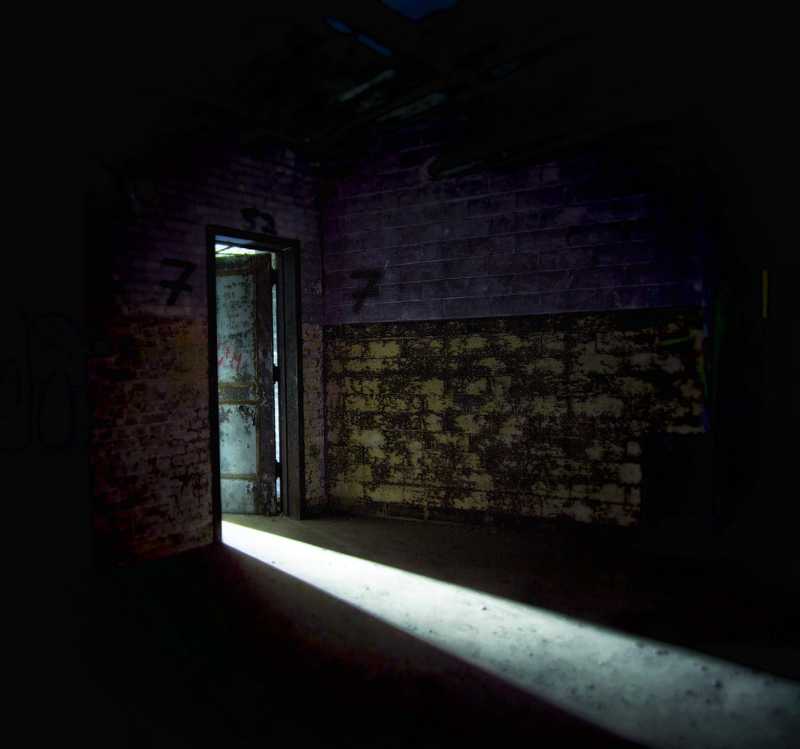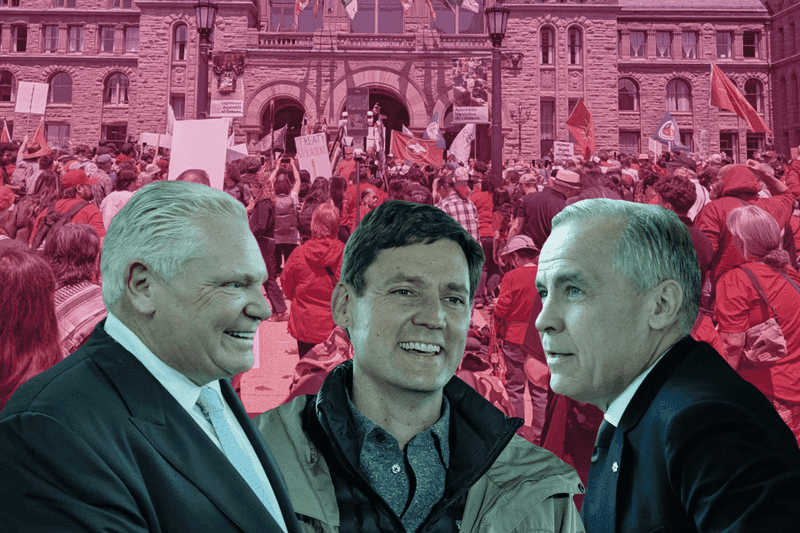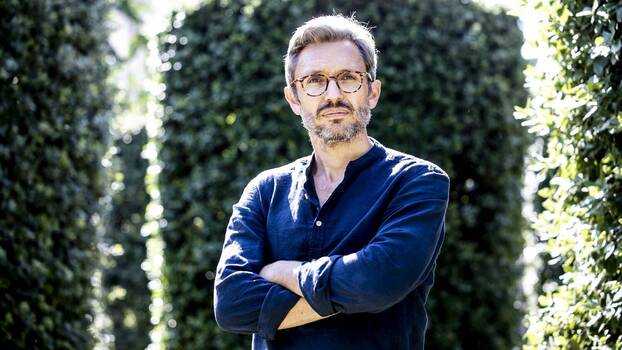
But at what cost? And whose?
With planes grounded and commutes suspended, the human impact on the environment may be declining, but incomes are also constrained, supply chains interrupted, and millions of people are on the brink of poverty, homelessness and bankruptcy as a result.
We are living, in other words, in an extreme state of degrowth.
This is not a solution to the climate crisis, but a dystopic vision of its outcome. Indeed, the current crisis has provided an image of the world after environmental systems collapse: where millions lack access to basic goods, where movement is severely restricted, and where economic activity of any kind threatens to tilt our natural system into meltdown.
Reclaiming the world after Covid-19 will require more than emergency ad-hoc measures. On the contrary, the public must become engaged in the rational planning of economic activity: human beings must work together to determine democratically the best use of our collective resources.
This is the premise of the Green New Deal: states must use their command over our collective resources to constrain polluting activities whilst investing in the decarbonisation of our public infrastructure to absorb job losses in carbon-intensive sectors.
And as the pandemic has now revealed, state planning is not nearly as utopian as the right has made it sound.
Planning for Profit
Those on the right have always responded to such arguments with the knee-jerk reaction against any interference in the operation of free, competitive markets. Too much public investment distorts the natural operation of the price mechanism, they argue — a mechanism that facilitates the efficient allocation of society’s resources by maintaining an equilibrium between supply and demand. To counter this problem, states would have to know exactly how many resources were available and have a concrete plan for how they would be used. Fans of economist Friedrich Hayek would argue that the economy is too complex a system to be subject to successful central planning. Any well-intentioned interventions by well-meaning bureaucrats would have unintended consequences that would be more likely to decrease efficiency than bolster it.
The Green New Deal can, according to this perspective, only lead to corruption and inefficiency of the kind that would worsen environmental breakdown.
But the strength of these arguments is called into question by the evidence about how actually existing capitalism functions. Modern capitalism is already subject to huge amounts of corruption and inefficiency; it is characterised by widespread collusion between huge international monopolies and their clients in state and international institutions. Financial, corporate and political elites work together to plan economic activity — but they do so in their own interests, rather than in the public interest.
Profiting from Pandemic
The response to the coronavirus crisis illustrates these dynamics very clearly. While huge businesses receive subsidies for their wage bills — as well as easy access to cheap state loans — small enterprises are finding it much harder to access the government schemes designed to help them. In the UK, just 16,600 loans have been given to the UK’s nearly 6 million small and medium sized enterprises since the crisis began. As the crisis continues, state support for private enterprise is likely to increase, and large corporations — able to engage in public relations, lobby governments and buy off politicians — will be first in line.
Many large, multinational corporations are already anticipating a state bailout. Richard Branson has offered to mortgage his private residence, Necker Island, in order to secure a loan from the state. Such options are obviously not available to smaller businesses seeking access to loans. Instead, they are likely to be bought up by their larger competitors, accelerating the concentration of capital that was already reaching record heights.
Many large monopolies, meanwhile, will be able to withstand even a severe downturn owing to the huge cash piles they have accrued from anti-competitive practices in recent years. Monopolistic corporations restrict production in order to maintain supernormal profits, which means they cannot reinvest all their earnings. Tax evasion, exploitation of the workforce and government subsidies help too. The world’s largest corporations are sitting on trillions of dollars’ worth of cash, some of which they invest in financial markets or lend to other corporations. In other words, these corporations are behaving increasingly like banks.
Some such firms will not simply withstand the pandemic, but profit from it. Online retail platforms like Amazon have reported a spike in sales, meaning that workers in its warehouses are working harder than ever, often in highly unsafe conditions. Pharmaceutical companies, supermarket chains and private health companies can all expect to see rising profits as the crisis continues.
The investor class will do just as well. The expansion of quantitative easing programmes — including the Federal Reserve’s promise to provide ‘QE infinity’ — will place a floor beneath falling asset prices. Productivity, sustainability, and prudence: none of it will matter to gain access to the Fed’s unlimited funding.
Central banks are, as they have for several decades now, creating a huge problem of moral hazard, shielding investors, banks and businesses from the downturn. While the policies being implemented in response to the coronavirus crisis take this trend to new extremes, the bail-outs introduced during the 2008 financial crisis — and the extremely loose monetary policy implemented in its wake — had the same effect. Banks were considered ‘too big to fail’ (and the bankers ‘too big to jail’), while low interest rates meant any number of unproductive businesses was able to survive where otherwise they might have collapsed.
Is this the economy that we are expected to defend?
Creating the General Cartel
As monopolistic businesses thrive and smaller ones die, we will see an acceleration of economic centralization. This concentration of resources will facilitate the strengthening of links between business and the state on the one hand (states will become more dependent upon these businesses for tax revenues and political funding), while the businesses will become more interested in regulation and tax policy. The likely result is the ‘general cartel’ in the Global North, set to plan a huge share of economic activity. Free market, competitive capitalism — if it ever actually existed — will not emerge from this crisis.
The free marketeers who oppose the Green New Deal would recognise this critique. They frequently complain about moral hazard and loose monetary policy, blaming the over-activity of the state for the emergence of ‘crony capitalism’. These arguments are generally pitted against those of social democrats, who respond that state intervention is necessary to mitigate the ups and downs of the business cycle. Both arguments have some merit. Excessive state intervention has distorted the operation of free market capitalism, transforming it into a financialised, monopolistic variant. However, without the interventions that have given rise to such a situation, the global economy would likely have collapsed with far-reaching political implications.
The apparent contradiction between these two arguments is, however, only superficial. Proponents of both perspectives rely upon the liberal notion that the political and the economic are somehow separate — that free markets exist as a self-regulating sphere, subject to greater or lesser levels of intervention from a central state.
Instead, we must understand capitalism as a holistic system — one where states, capitalists and other powerful ruling class actors cooperate in order to ensure their own survival, and the survival of the system that created them. Capitalist states, capitalist banks and capitalist enterprises work together during moments of crisis to protect one another from the consequences of the crises they have created, and to limit their impact so as to forestall demands for fundamental political economic transformation. These crises, and the market concentration and ruling class cooperation they engender, are not avoidable kinks in the system but an inherent feature of any version of capitalist accumulation. You cannot have capitalism without crisis.
Put simply: we already lived in a planned economy, but the planning that does take place is neither democratic nor rational.
Toward the Green New Deal
In the wake of this pandemic, the old arguments between free marketeers and social democrats will resurface once again. The former – though they were happy to receive state largesse when the crisis was at its worst – will complain that the state has done too much, grown too large and rendered markets uncompetitive. They will call for cuts in state spending, reductions in regulation and the continued erosion of workers’ rights. The latter will respond simply by pointing out that it was necessary at the time. A compromise will likely emerge, whereby ongoing support for banks and big businesses is combined with a renewed round of austerity, meaning the costs of this crisis will be heaped on working people just as were those of the last one.
The Green New Deal shows the way out of this two-sided trap. Alongside a programme of public works aimed at increasing employment and wages and decarbonising economic activity, the significant stakes taken by the state in many private businesses could be used to direct the activities of these corporations in line with democratically-determined environmental, social and political ends. Central banks, which will by then have huge balance sheets, could use their power to direct credit towards sustainable businesses, as well as green research and development. Rather than being bought up by large corporations, failing businesses could be purchased by their employees with state support.
Free marketeers will trot out the same arguments against such plans. But this time, they will be confronted by the reality that we already live in an uncompetitive, monopolistic and state-planned economy. They may argue for a return to a different kind of capitalism, but unless they are able to chart a course there — impossible without huge social and political costs — their arguments will be rendered untenable. We must make the case for the Green New Deal now by pointing to the level of state planning currently underway in response to the coronavirus crisis; planning that has become increasingly prevalent in our cartelized econom.
Our choice is not ‘to plan or not to plan?’ but ‘in whose interests should we plan?’
The case for democratic public planning is clear. The inefficiencies, inequities and corruption generated by state-monopoly capitalism do not result from centralisation in itself, but from centralisation absent the centrifugal force of democratic accountability. There is a strong case to be made that, in the wake of this crisis, the resources by then under the command of the state should be allocated by the public, for the public. Absent this plan to democratize the economy, this crisis — and the suffering of so many millions of people it has caused — will have been for nothing but capital itself.
Photo: DeeAshley





